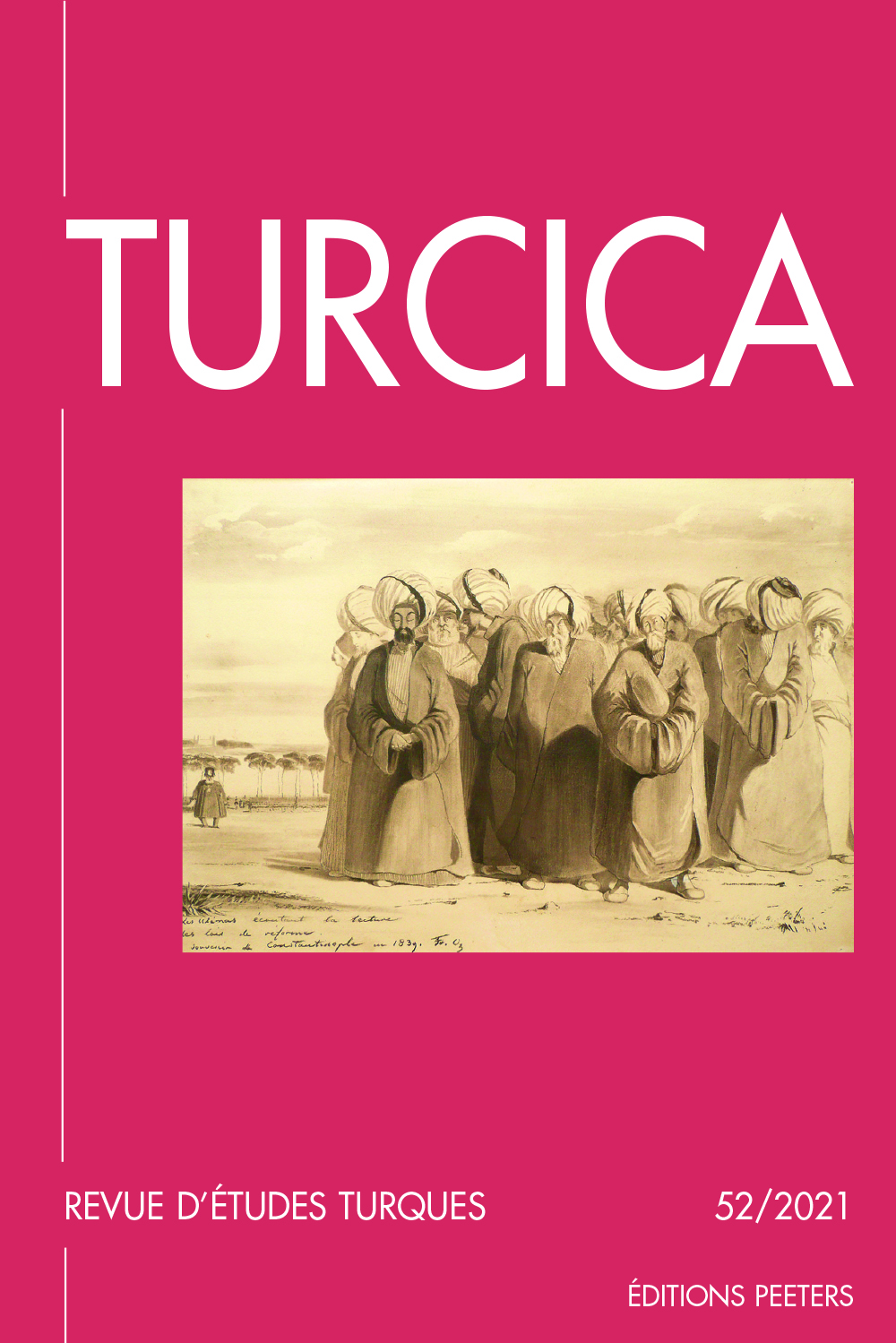 previous article in this issue previous article in this issue | next article in this issue  |

Preview first page |
Document Details : Title: Embourgeoisement, résaux sociaux et identités de genre dans les Balkans (Deuxième moitié du XIXe siècle) Subtitle: Le cas de Sotiria Cléoménous-Alibertis Author(s): CANNER, Efi Journal: Turcica Volume: 39 Date: 2007 Pages: 175-199 DOI: 10.2143/TURC.39.0.2033061 Abstract : Sotiria Cléoménous-Alibertis, intellectuelle née à Athènes en 1847, eut une vie active pendant le dernier quart du XIXe siècle et les deux premières décennies du XXe siècle. Elle fut sous-directrice de l’école de jeunes filles Zappeion d’Istanbul, fit partie du milieu d’Efêmeris tôn kyriôn [Journal des Dames], la première revue féministe grecque, et a laissé une abondante oeuvre littéraire. Par le présent article, on a l’ambition de démontrer comment l’embourgeoisement dans les États grec et ottoman a entraîné l’intégration d’un groupe de ressortissantes grecques, à savoir Sotiria Cléoménous et ses collègues du Zappeion, dans l’élite hellénophone d’Istanbul. On s’efforce ainsi de mettre en évidence le rôle actif joué par certaines femmes dans le processus d’embourgeoisement dans certains milieux grecs et ottomans et la formation de l’image de soi qui en découle. À l’aide des outils méthodologiques proposés par la microhistoire et la biographie, on situe l’action des agents sur le plan relationnel et on l’envisage en corrélation avec une gestion des émotions liée à la culture des Lumières. Sotiria Cleomenous-Alibertis was an intellectual whose activity took place in the last quarter of the 19th century and the two first decades of the 20th one. She worked as an assistant director in the Zappeion — a prestigious Greek Orthodox girls’ school in Istanbul. She was a member of the Efêmeris tôn kyriôn [Ladies’ Journal] circle (Efêmeris tôn kyriôn was the first Greek feminist review). She was also a novelist and a columnist in several other newspapers and periodicals in Athens and Bucharest. In this paper I try to examine the integration of a group of Greek women teachers in the Istanbul Greek-Orthodox élite as an aspect of the westernization process in both Greece and the Ottoman Empire. I demonstrate thus the active role played by some women in setting up middle class values as a social ideal. By the means of the methodological tools proposed by micro-history and biography I situate the individuals’ action in the context of the social networks they create — mostly the informal ones — and I approach it in proportion to their gendered and class oriented self-image stemming from the Enlightenment culture and its management of the emotions. |
 |


